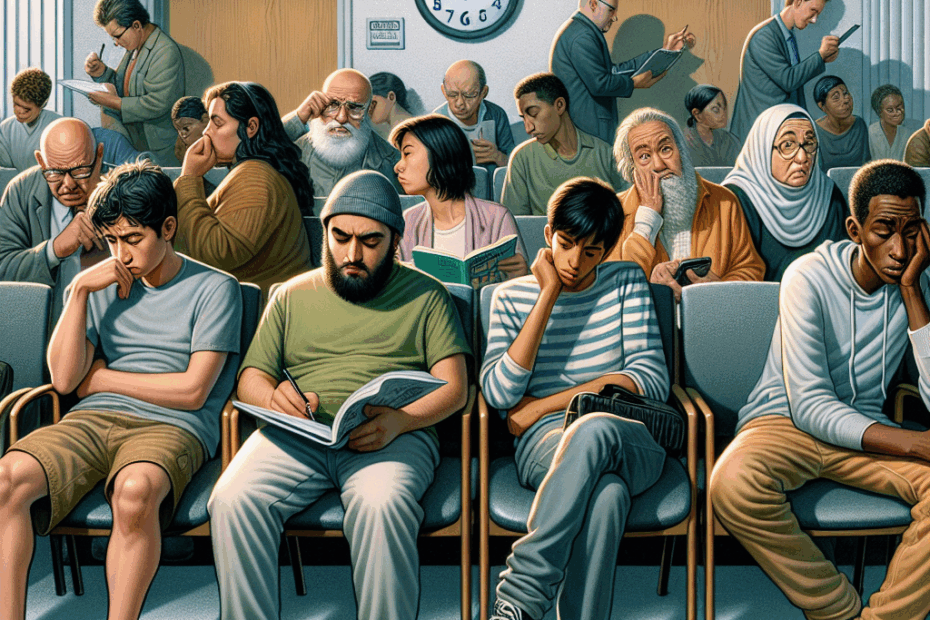“`html
Why Waiting Too Long for Mental Health Care Can Be Risky
Hey everyone, John here! Today we’re diving into a really important topic: mental health care and how long it takes to get it. A recent study looked at how waiting times for mental health appointments can affect people’s health and even their lives. Let’s break it down so it’s easy to understand.
The Study: Veterans and Mental Health Care
This study focused on veterans who went to the emergency department for mental health issues. Researchers, Costantini et al. (2025), wanted to see if there was a link between how long these veterans had to wait for follow-up care and their overall health outcomes. They used data from the Veterans Affairs (VA) system.
Lila asks: John, what’s the VA?
Good question, Lila! The VA, or Veterans Affairs, is a government organization that provides healthcare and other services to veterans – people who have served in the military.
Missing Appointments and Dropping Out of Care
The study found that longer waiting times for mental health appointments made it more likely that veterans would miss their follow-up appointments. And if they missed those appointments, they were more likely to stop seeking care altogether. This is a big problem!
The Ripple Effect: Health Consequences
When people disengage from mental health care, it can lead to a lot of negative consequences. Their mental health conditions might get worse, and they might be more likely to experience other health problems. The study suggests that these longer wait times and disengagement could even increase the risk of mortality.
Lila asks: Mortality? Sounds scary!
It does sound scary, Lila, but it just means the possibility of death. The study hints that not getting timely mental health care might, in some cases, contribute to a higher risk of dying.
Why Waiting Matters: An Analogy
Think of it like this: Imagine you have a leaky faucet. If you fix it right away, it’s a small, easy job. But if you wait too long, the leak can cause water damage, mold, and eventually require a much bigger and more expensive repair. Mental health is similar. Addressing issues early can prevent them from becoming bigger problems down the road.
Breaking Down the Numbers
The original article mentions “a 1 standard deviation increase in wait…” Let’s simplify that.
Lila asks: John, what’s a “standard deviation”? That sounds like math!
You’re right, it is a bit math-y! But don’t worry, I’ll explain. Imagine you measure the wait times for a bunch of people. The standard deviation is basically a measure of how spread out those wait times are. So, a “1 standard deviation increase” just means a noticeable increase in how long people are waiting, compared to the average wait time.
What Can Be Done?
This study highlights the urgent need to reduce waiting times for mental health care. Here are a few things that could help:
- More Funding: Investing more money in mental health services can help hire more staff and expand access to care.
- Better Coordination: Improving communication and coordination between different healthcare providers can ensure that patients receive timely follow-up care.
- Telehealth Options: Using technology like video conferencing can make it easier for people to access mental health services, especially in rural areas or for those with mobility issues.
- Streamlined Processes: Making the process of scheduling appointments and receiving care more efficient can reduce wait times.
My Thoughts, and Lila’s Too!
It’s disheartening to see how delays in mental health care can have such serious consequences. We need to prioritize mental health and make sure people get the support they need, when they need it. It’s a matter of life and quality of life.
Lila says: Wow, I didn’t realize waiting for mental health care could be so risky! It makes me think about how important it is to be proactive about our mental well-being and to support people who are struggling.
This article is based on the following original source, summarized from the author’s perspective:
Impact of mental health wait times on mortality
“`
